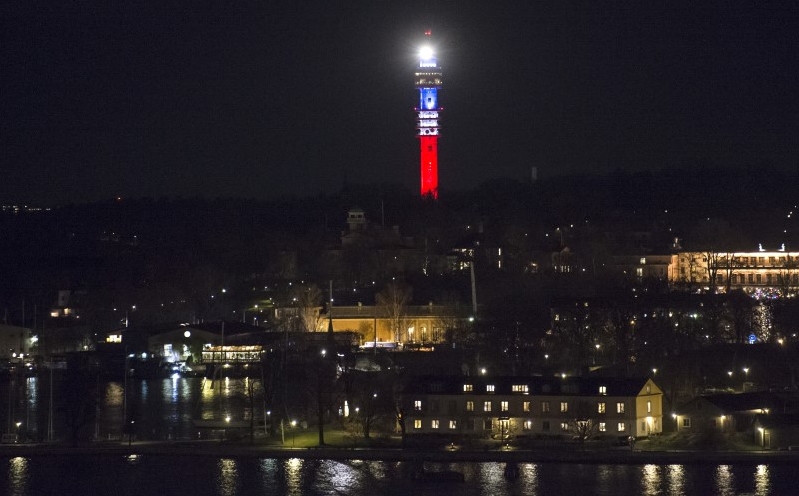
Sweden's security police raised on Wednesday their terrorist threat assessment by one step, to four on a scale of five, issuing an arrest warrant for one person and saying there was "concrete information" of a possible attack in Sweden days after the Paris killing spree.
Security police (SAPO) chief Anders Thornberg said one arrest had been made "in absentia" for terrorism crimes for an unnamed suspect. He said there were no known links at present with the Paris attacks but the threat from Islamic State militants formed the backdrop to the raised risk level.
"We are in an intensive operative phase and are working to analyze and assess incoming information," Thornberg told a news conference. "At present, we know of no links to what has happened in France and Belgium."
Level four means that there is a high probability that "persons have the intent and ability to carry out an attack".
Swedish police said they had increased their presence in "strategic and public places", including foreign embassies, following the raising of the threat assessment level.
Prosecutors have opened a preliminary investigation into a possible terrorist offense.
Danish police increased on Wednesday their security readiness to the second-highest of five levels of readiness, as a consequence of the attacks in Paris last week. Norway also activated some of its anti-terrorism plans in response to last week's attacks.
Local Swedish news agency Six, citing an unnamed source, said an Iraqi man who had received military training in Syria entered Sweden on Wednesday with the intent to carry out an attack.
The agency said authorities did not know where, when or how any attack could be carried out. It was not clear whether the attack was planned to be carried out in Sweden.
The security police declined to comment on the report.
Swedish Interior Minister Ygeman told a news conference that the man hunt alone would likely not have been sufficient to raise the threat level but came in the context of heightened security concerns across Europe.
"We are determined to take every action to secure order, security and safety in our country," he said.
Sweden over the last few years has participated in NATO missions in Afghanistan and are training Kurdish forces in Iraq, moves that have changed its traditional image of neutrality.
The last militant attack in Sweden came in 2010 when a suicide bomber died when his bomb belt went off prematurely in central Stockholm as he was getting ready to attack a train station or department store.
The same month Swedish and Danish police arrested five people for planning to attack employees of a Danish newspaper that sparked global controversy in 2005 with cartoons of Prophet Mohammad.
"We sometimes exaggerate the idea that just because we are not part of a military alliance and relatively neutral that we have a kind of immunity to terrorism and extremism," said Magnus Ranstorp, research director with the Center for Asymmetric Threat Studies at the Swedish National Defense College.
"But it does not work like that."






